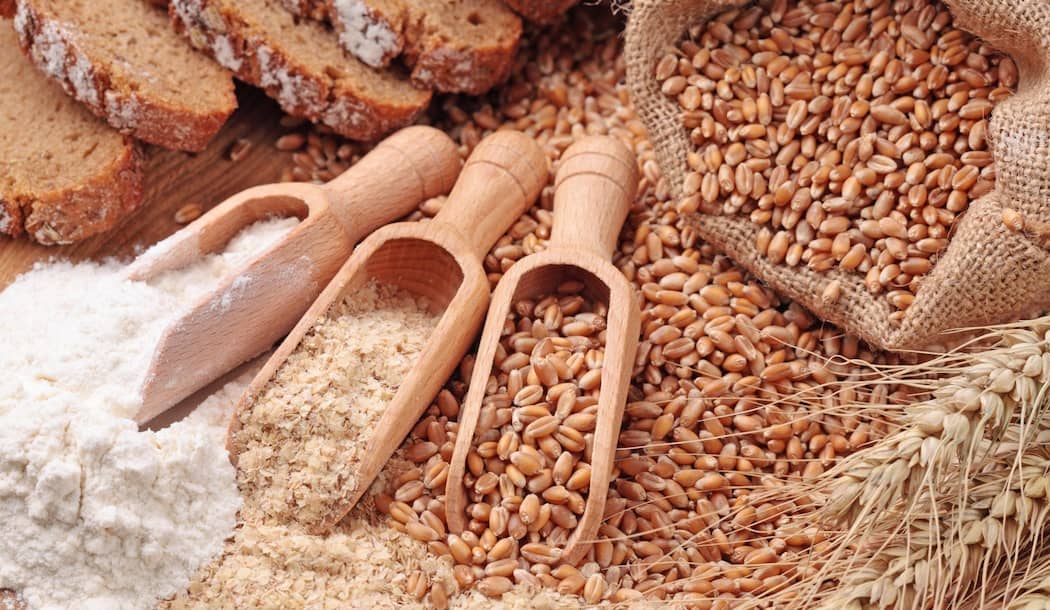
There’s one single group of foods that gives you a massive dose of some of the most important cancer-fighting nutrients, especially when it comes to preventing colon cancer.
Best of all, eating foods from this specific food group is more affordable than most bottles of supplements.
I’m talking about whole grains.
When it comes to cancer, more whole grains in your diet means more cancer protection. But unfortunately, most people only eat about a third of the recommended daily amount of whole grains.
Yet, if you can bump that up to three servings a day, you’ll be rewarded with a 17 percent lower risk of colorectal cancer.
The main reason is because all of the vitamins, fiber, and phytonutrients found in whole grains work to support your body by reducing chronic inflammation, which in turn, can support immune health.
These nutrients also help protect the gut against toxins and help carry toxins out of your gut faster than they would leave otherwise.
In addition, all of the fiber within whole grains also means you’ll feel fuller longer, eat less, and keep your weight at a healthy level.
What are whole grains?
Grains are simply the harvested seeds of different types of grasses, including sorghum, millet, rye, oats, rice, wheat, corn, and barley. They come in all shapes and sizes, from tiny quinoa seeds to large popcorn kernels.
A whole grain is the whole seed of something, made up of an inner layer of germ, wrapped by a layer called the endosperm, wrapped by an outer layer called the bran layer.
When you eat a whole grain, you’re eating these three layers. Sometimes you eat the layers in their original form, as with brown rice or popcorn, and sometimes you eat them ground up in other products, like buckwheat in bread or whole-wheat flour in waffles.
Refined grains are “empty” grains
On the other hand, milled grains are ground to fine particles, which removes the germ and brand layers of the seed. The result is a finer texture and a longer shelf life.
You’ll see refined grains used in desserts and pastries, along with some breads, cereals, and crackers. Anything white tends to be refined, including white rice, white flour, and white bread. But the downside here is that the refining process cuts out most of the nutrients, including fiber.
There’s a happy medium between whole and refined grains, which are enriched grains. That means some of the nutrients, such as B vitamins, that got lost during the processing phase of harvesting and manufacturing were replaced. In fact, many refined grains are now enriched, so they’re fortified with vitamins and minerals like folic acid and iron. And that’s good, but they can’t get their fiber back once it’s been removed. What’s more, the nutrient additives may not be of the highest quality.
All this is to say that whole grains, whenever possible, will always be the better, healthier choice than refined or enriched grains. Some of the best whole grains to add to your diet are bulgur, millet, buckwheat, barley, oatmeal, brown rice, and popcorn.
Make whole grains part of a balanced diet
Start by adding a whole grain to each meal, and you’ll already be doing better than most of the population.
This change may be as simple as adding whole grain cereal to your breakfasts, whole grain bread to your sandwiches, and a cup of cooked brown rice or barley to your soups, entrees and casseroles.
But while whole grains are superior in terms of vitamins and minerals, they don’t offer you enough folic acid, which is a B vitamin.
Research has shown that diets rich in folic acid can help prevent abnormal cellular changes in the colon that can result in cancer. A study in the journal Gut found that 2 mg of folic acid per day for three months resulted in a significant drop in precancerous growths in patients with a history of these growths, when compared to patients with the same history who were given a placebo.
It’s wise to choose whole grains that have been fortified with folic acid or to take a folic acid supplement. And as always, make sure you eat plenty of fruits, vegetables, and legumes; they’re naturally rich in folate as well as numerous other cancer-fighting nutrients.
Best regards,

Lee Euler,
Publisher
References:
- “Foods You Should Eat to Avoid Colon Cancer.” by Stephanie Wood for Health Central, 7 January 2021. https://www.healthcentral.com/slideshow/foods-you-should-eat-to-avoid-colon-cancer
- “Whole grains: Hearty options for a healthy diet.” From the Mayo Clinic, 20 August 2020.https://www.mayoclinic.org/healthy-lifestyle/nutrition-and-healthy-eating/in-depth/whole-grains/art-20047826
- “Grain.” From National Geographic Resource Library. https://www.nationalgeographic.org/encyclopedia/grain/
- https://www.webmd.com/colorectal-cancer/news/20020719/folic-acid-fights-colon-cancer